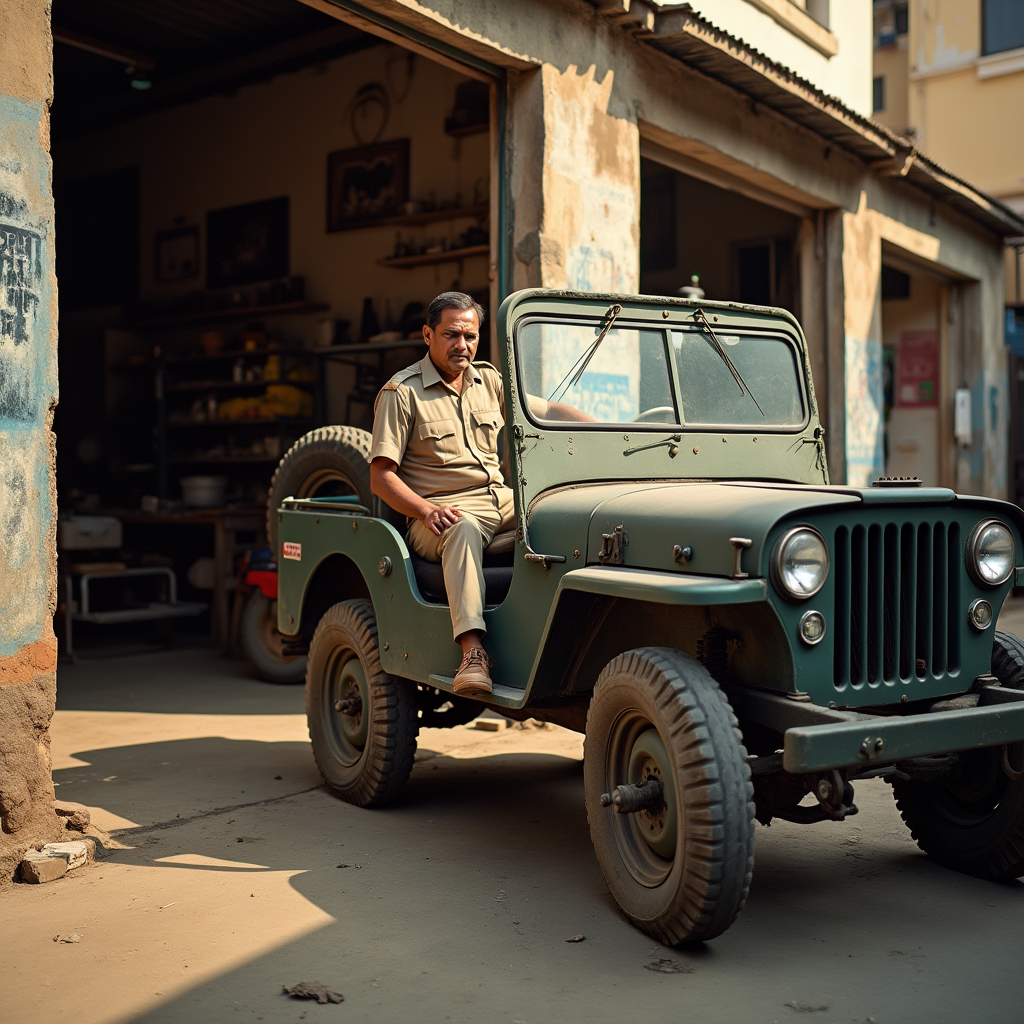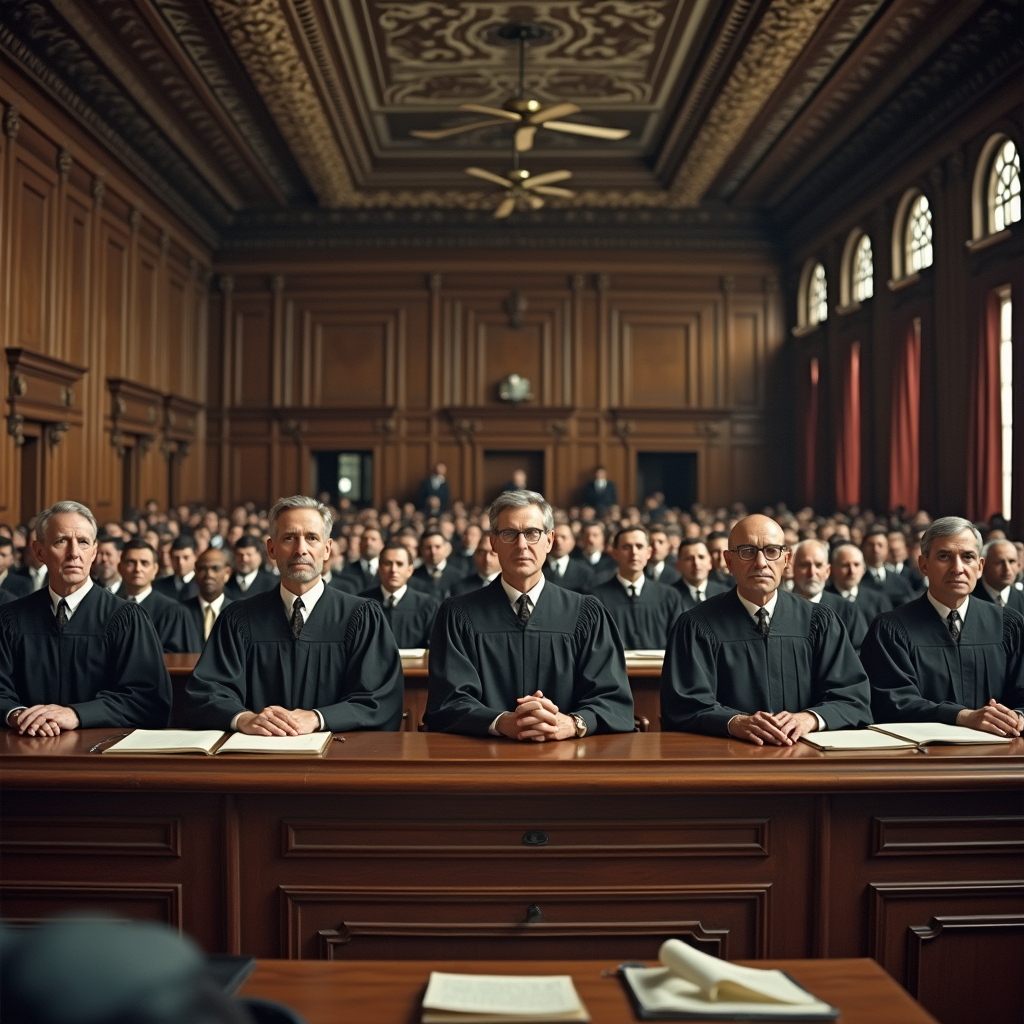This article is authored by Nidhi Bajaj and further updated by Anwesha Pati. The article presents an analysis of the landmark judgement in law of torts after the enactment of the Constitution which deals with the liability of the government for the tort committed by its servants.
This article has been published by Shashwat Kaushik.
Table of Contents
Introduction
With the transition from a monarchical system to a democratic form of government, the concept of State and the nature of functions undertaken by it have undergone significant changes. The State is involved in a wide array of private undertakings and consequently, there arose a need for affixing the liability of persons acting under the authority of the State for their tortious acts. Thus, the vicarious liability principle under the law of torts was extended in such cases and the decision rendered by the Hon’ble Supreme Court in the present case holds a pivotal position in the jurisprudence of cases dealing with vicarious liability of State in the Post-Constitution era.
Details of the case
Case name: The State of Rajasthan v. Mst. Vidhyawati and Anr.
Date of judgement: 02/02/1962
Citation: 1962 AIR 933, 1962 SCR Supl. (2) 989
Court: The Supreme Court of India
Bench: J.Bhuvneshwar P.Sinha (CJ), J.Jeevan Lal Shah, J.Mohammad Hidayatullah, J.Jayantilal C. Shah, J. Janardan R Mudholkar.
Name of the parties: State of Rajasthan (Appellant) and Vidyawati (Respondent)
This is a landmark judgement dealing with the issue of liability of the State for the tortious act of its servants. This issue came before the Hon’ble Supreme Court in a civil appeal filed against the order and judgement of the Rajasthan High Court.
Facts of the case
Lokumal i.e. Defendant no. 1, a temporary employee of the State of Rajasthan was employed as a motor driver (on probation) of a government jeep car under the Collector of Udaipur. The car had been sent for repairs. On February 11, 1952, while driving the car back from the workshop after the repairs were done, defendant no. 1 knocked down one Jagdishlal, who was walking on the footpath by the side of the public road. Jagdishlal was severely injured and his skull and backbone were fractured. Three days later, he died in the hospital. The Plaintiffs, i.e., widow of Jagdishlal and his daughter aged 3 years, through her mother as next friend filed a suit for damages for tort against Lokumal and the State of Rajasthan (Defendant no. 2) claiming compensation of Rs. 25,000 from both defendants. Defendant No. 1 remained ex-parte and the suit was contested by Defendant No. 2 on various issues.
Decision of the Trial Court
The Trial Court decreed the suit of the plaintiff as against Defendant No. 1 but dismissed the suit against Defendant No. 2. The Court held that the fact that the car was maintained for the use of a collector for discharging his official duties is sufficient to exclude the case from the category of cases wherein the vicarious liability of the employer could be made out. The Trial Court held that Defendant No. 1 was rash and negligent in driving the car that caused the accident which ultimately led to the death of the deceased.
Decision of the High Court
The plaintiff, aggrieved by the order of the Trial Court, filed an appeal to the Rajasthan High Court. The High Court decreed the suit of the plaintiff as against the second defendant also. The Court ordered Defendant no. 2, i.e., the State of Rajasthan to pay compensation of Rs. 15,000 to the plaintiff.
It was held that “the State is in no better position in so far as it supplies cars and keeps drivers for its civil service. It may be clarified that we are not here considering the case of drivers employed by the State for driving vehicles which are utilised for military or public service.”
Thereafter, the State of Rajasthan filed an appeal to the Hon’ble Supreme Court after obtaining a certificate under Article 133 of the Constitution of India from the High Court certifying that the case involved a question of general public importance.
Issues raised in the case
- Whether the State of Rajasthan is vicariously liable for the tortious act committed by its servant?
- Whether the driving of the jeep car from the workshop back to the Collector’s place can be regarded as being done in exercise of sovereign function/power of the State?
Applicable rules
It is pertinent to have a brief idea about the concept of vicarious liability of a State for the tortious acts of its servants. Vicarious liability means to be liable for the act of another person even though the act has not been done directly by him/her by reason of certain kind of relationship existing between the concerned persons. For example, the relationship that exists between an agent and his principal, between partners of a firm and in case of a master and his servant are some of the instances where the principle of vicarious liability is applicable. It is based on the maxims –

- Qui facit per alium facit per se which means one who acts through another does that act himself.
- Respondeat superior which means let the principal be liable.
Thus, an act done by an agent will be regarded as an act of the principal, provided that the act was authorised by the principal and was done while that relationship was existing. This concept of vicarious liability is applicable to the modern day welfare State and its employees. The State is considered the principal and its employees are deemed as its agents, who carry out the functions of the State as directed. Hence, the State is held liable for wrongful acts committed by its servants during the course of discharging its functions under certain circumstances.
In England, before the enactment of the Crown Proceedings Act, 1947, the position was different. The principle that the “king can do no wrong” was followed and the Crown was considered to be immune from any liability for the tortious acts of its servants. However, the gradual increase in the nature of functions undertaken by the Crown called for a reworking of the liability principle and it began defending the cases brought against its servants for wrongful acts committed in the course of employment, but still it could not be directly held liable. The passing of the Crown Proceedings Act, 1947, saw a change in the position, with the result being that the Crown could be sued for torts committed by persons who were employed as its servants or agents under Section 2(1)(a) of the said Act.
In India, the liability of the State does not find mention in the Constitution but the same can be discerned from Article 300, which states that the Government of India or the State Government has the capacity to sue or be sued but it fails to enumerate the circumstances under which the Government can be held liable. Before the enactment of the Constitution, the principle of sovereign immunity was not applicable in India and the liability principle incorporated in Article 300 has been adopted from the extent of liability that was attributed to the East India Company for the tortious acts of its servants under the Acts of the Legislature in force during that time.
Pre-Constitutional cases
The most important case relating to the concept of vicarious liability of the State is the Peninsular and Oriental Steam Navigation Co. v. The Secretary of State for India (1861). The Court for the first time, expressed a need to make a distinction between sovereign and non- sovereign functions for the purpose of delineating the liability of the East India Company. According to Peacock, C.J., the Company can be held liable like an ordinary employer for the tortious acts that were committed while carrying out the activities of the Company under Section 65 of the Government of India Act, 1858 and the doctrine of sovereign immunity, which rests on the principle that the king can do wrong and therefore he cannot authorise any wrongful act, is not available to the Company. However, the Company or its servants cannot be held liable when they act as representatives of the British Crown and discharge sovereign functions delegated to them.
The view taken in the Peninsular Case was applied in the case of Nobin Chander Dey v. Secretary of State (1875) where the plaintiff had entered into a contract with the Government for the procurement of a licence for selling certain excisable goods and drugs. The plaintiff made the payment to the excise officials for obtaining the licence and bought the goods for sale. However, due to the negligent act of the officials, the licence was not granted, as a result of which he had to resale the goods at a lower price, thus incurring losses. Thereafter, the plaintiff sued the Secretary of the State for breach of contract. The Court was of the view that matters relating to custom and excise are sovereign functions and are regulated by the Government exclusively. Although the existence of the contract could not be established by the plaintiff through evidence, nonetheless, it was held that the State cannot be held liable as the contract was entered into in exercise of its sovereign functions.

The case of Secretary of State v. Hari Bhanji (1882) is also an important authority on this point, where the distinction between sovereign and non- sovereign functions has been blurred. In this case, the Madras High Court restricted the concept of sovereign immunity to only “Acts of the State”. Act of State means those acts that are carried out by officers of the Government as part of the administration of the State and private individuals do not have the legal sanction to carry them out. Thus, it follows that sovereign immunity can be claimed only for those acts done in exercise of sovereign powers but will not be available for acts done by public servants under the powers conferred by statute, even if they are done in exercise of sovereign powers.
Arguments of the parties
Submissions made by the Defendant-appellants
- It was argued on the behalf of defendant-appellants that the question of liability of the State has to be determined in terms of Article 300(1) of the Constitution. It was submitted that the State of Rajasthan could not be held liable under Article 300 of the Constitution of India as the liability of the corresponding Indian State would not have been made out if the case had arisen prior to the commencement of the Constitution.
- It was argued that in order to succeed in his case and prove the liability on the part of the State of Rajasthan, the respondent-plaintiff must prove that the State of Udaipur i.e. corresponding state would have been liable if the case had arisen before the enactment of the Constitution.
- It was also submitted that the jeep car was being maintained in the exercise of sovereign functions and not as a part of any commercial activity of the State
Submissions made by the Plaintiff-respondents
- It was submitted on the behalf of plaintiff-respondent that Chapter III of Part XII of the Constitution of India, namely “Property, Contracts, Rights, Obligations and Suits” contains other articles i.e. Article 294 and 295 which deal with rights and liabilities, whereas Article 300 merely addresses the question of whose name the suit may be filed. Article 300 does not deal with the extent of liability of a State and is not relevant in the case at hand.
Judgement in The State of Rajasthan vs. Mst. Vidyawati and Another (1962)
Ratio of the judgement
The Supreme Court, while dismissing the appeal with costs, upheld the decision of the Rajasthan High Court stating that the State is liable like a general employer for wrongful acts of its servants committed during the course of employment. The Court, while referring to the case of Peninsular and Oriental Steam Navigation Co. v. The Secretary of State for India, held that the liability of a State stems from Article 300 of the Indian Constitution and is similar to the liability of the East India Company for tortious acts of its servants as it existed after the passing of the Crown Proceedings Act, 1947. The principle of immunity of the State under common law is not applicable in India and with the establishment of a socialist state that undertakes various economic and industrial activities for which a large number of people are employed to carry out the tasks, it would not be justified in the public interest to keep the State outside the purview of tortious liability.
Obiter dicta
The Supreme Court, while dealing with the question of the applicability of Article 300 of the Constitution in determining the liability of the State of Rajasthan, construed it into three parts, where the first part states that any suit brought against the State shall be in the name of the concerned State. The second part of the Article deals with the actual liability of the State which lays down that a suit can be instituted by or against it in a similar way as the Provinces and Indian States that existed prior to the enactment of the Constitution would have instituted a suit in respect of the affairs of the State. The third part of the Article states that the power of a State to sue or be sued can be altered or modified by an Act of the Legislature of the State in exercise of constitutional powers vested upon it. The Court stated that the wordings of Article 300 have drawn inspiration from the erstwhile legal provisions that dealt with the liability of the East India Company and perused Section 176 of the Government of India Act, 1935, Section 32 of the Government of India Act, 1915, and Section 65 of the Government of India Act, 1858. Section 176 of the Government of India Act, 1935, vests the Federation or Provincial Government with the power to sue or be sued in respect of their affairs. Section 65 of the Government of India Act, 1858 states that suits, proceedings and remedies can be brought against the Secretary of State in Council, which shall act as a body corporate for the purpose of claiming any damages in respect of any contractual liability in the same manner as they could have been claimed against the East India Company. Thus, a conjoint reading of the aforesaid sections along with Article 300 clearly indicates the similarity in notion as to the liability of the State where the term “Government of India/ State” has been substituted in line with the changing authority in the respective eras.

The contention of the State of Rajasthan that it is not liable for wrongful acts of its servants if the same has been committed while discharging any functions of the State has also been dealt with by the Supreme Court. According to its opinion, the State of Rajashan cannot escape liability because it is in the nature of a welfare state and in today’s times, its functions are not confined only to administration; rather, it takes up various tasks involving commercial, industrial, and public sector undertakings. Its position is akin to that of the East India Company, which not only exercised sovereign powers delegated to it by the British Government but was also involved in transactions of commercial nature, trading, public transport and other activities that brought profits to the Company. Thus, the liability imputed to the East India Company is to be applied in the case of the Indian States. To determine the extent of liability of the Company, the Court has referred to the view taken by the Supreme Court of Calcutta in Peninsular and Oriental Steam Navigation Co. v. the Secretary of State for India. In the said case, it was held that the East India Company was exercising functions of dual nature- those functions vested upon it by the British Governments and also the functions of the Company. The Court while drawing a distinction between sovereign and non-sovereign functions, held that the Company would be liable, like a regular employer would have been liable for any harm caused due to the negligent acts of its servants but is not liable if its officers are involved in activities that are the exclusive domain of the British Government like carrying out military or naval activities. The words “liabilities incurred,” as used in Section 65 of the Government of India Act, 1858, were construed to include the liabilities that result from the negligent acts of the servants of the Company.
The question of whether the State of Rajasthan could be liable for the act of Defendant 1. in the case, i.e., Lokumal, was also discussed. On this point, the Court analysed the history of the formation of the Rajasthan State by amalgamating the several territories that existed independently. The court reached the conclusion that Rajasthan State in its present form was successfully integrated before the commencement of the Constitution and, as such, was on the same footing as the “corresponding Indian State” mentioned under Article 300 of the Constitution. Thus, tracing back the liability principle incorporated under Article 300 to the Government of India Act, 1858 and in the absence of any provision exempting the Rajasthan State from being vicariously liable for the wrongful acts of its servants, it can be concluded that the common law doctrine of immunity available to the Crown is not applicable in the present case. The Court was also of the view that the law prevailing before the enactment of the Constitution provided for holding the sovereign liable for damages arising out of a tort or contract and Article 300 of the Constitution is merely a reapplication of this principle.
Relevant cases mentioned in the judgement
- State of Bihar v. Abdul Majid (1954): The Court placed reliance on this judgement for recognising the right of the government servant to sue the government for recovery of arrears of salary.
- The Peninsular and Oriental Steam Navigation Company v. the Secretary of State for India (1861): This case was decided by the Supreme Court of Calcutta on receiving a reference from the Small Cause Court Judge. Brief facts of the case were— One of the horses drawing the plaintiffs carriage was injured due to the negligence of the Government employees in carrying a piece of the iron funnel. The plaintiff company claimed damages against the Secretary of the State. Learned Advocate General appearing on the behalf of the defendant contended before the Court that the State cannot be held liable for damages occasioned by the negligence of persons in its employment and that the State cannot be sued in its own court without its consent. The Court pointed out that in order to remove these difficulties arising in the way of getting redressal, the liability of the Secretary of the State in place of that of the East India company was specifically provided. The Court held the Secretary of State liable for the tortious act of its servant. It also clarified that the liability of the Secretary of the State was not a personal liability but had to be satisfied out of the revenues of India.

Significance of the judgement
The present case is particularly important in the context of determining the liability of tortious acts of persons employed by the State. It was the first case in India after the enactment of the Constitution where the Hon’ble Supreme Court after thoroughly perusing the legislations which governed the liability of the East India Company before independence, expounded that the Government acts like a welfare State to which the principle of vicarious liability was applicable and not the doctrine of sovereign immunity.. It also upheld the demarcation made between sovereign and non-sovereign functions of the East India Company in the Peninsular Case and applied it in this case, thus setting the ball rolling for future cases wherein it would be considered an important factor for determining the liability of the State.
Analysis and observation of the case
In this case, the Court undertook an in-depth analysis for determining the issue of the liability of the State for the tortious acts committed by its servants.
Reliance was placed on the case of Peninsular & Oriental Steam Navigation Company, wherein it was said that a clear distinction has to be maintained between those acts that are done in exercise of sovereign power or sovereign function and those acts that are done in conduct of undertaking which might be carried on by private individuals without having to delegate the power to them. Immunity shall be given only for those acts which are done in the exercise of sovereign power, i.e., the power that cannot be lawfully exercised except by a sovereign or any private individual to whom the power has been delegated.
While fixing the liability of the State of Rajasthan, the Court, in this case (the State of Rajasthan v. Vidhyawati), said that no provision of common law or statutory law has been shown which could exonerate the State from the liability. Also, with regard to the applicability of the maxim ‘the king can do no wrong’, the Court said that the rule has become outmoded in the UK itself with the enactment of the Crown Proceedings Act, 1947. Section 2(1) of the said Act provides for the liability of the Crown for the torts committed by its servants or agents as if it were a private person.
However, the Court also pointed out that even before the enactment of the aforesaid Act, the rule of absolute immunity of the sovereign was never applicable in India.
Conclusion
This judgement is the first ever post-constitution decision dealing with the issue of liability of the government for tortious acts of its employees. The case laid down in clear terms that the driving of the jeep car by the driver from the workshop to the Collector’s residence was not a part of the sovereign function of the State. A clear and wise distinction has to be made between the acts done in exercise of sovereign power and other acts of the State. A modern welfare State undertakes various activities such as industrial, commercial, public transport etc. for the welfare of the general public. No longer are the functions of the State confined to the maintenance of law and order. In such circumstances, it becomes pertinent that the State is not granted absolute immunity in all cases and should be held liable for the acts of its employees just like an ordinary employer.
Frequently Asked Questions (FAQs)
What is the vicarious liability of the State?
The word vicarious liability means to be liable for the act committed by another person.It is a legal principle used in tort law where the State is held liable for the tortious acts of its servants, provided they were committed in the course of their employment.
Is the State liable for any tort committed by its servants?
The State cannot be held liable for any tort committed by its servants. It can be held liable if the wrongful act was committed while discharging a non- sovereign function and not a sovereign function.
What is the difference between sovereign and non-sovereign functions?
Sovereign functions are those functions that are exclusively carried out by the Government. These functions cannot be delegated to any private individual nor can such functions be undertaken by them. Non- sovereign functions are those that do not require the interference of the state and can be carried out by private individuals or companies. Examples of sovereign functions include acts done by police officials, maintenance of the army,defence activities, and maintenance of law and order.
References
- https://indiankanoon.org/doc/1765956/
- http://www.jstor.org/stable/43949667.
- https://www.lawctopus.com/academike/state-rajasthan-vs-mst-vidhyawati-case-analysis/
- https://vidhilegalpolicy.in/wp-content/uploads/2015/06/VidhiReportonStateLiabilityinTort.pdf
 Serato DJ Crack 2025Serato DJ PRO Crack
Serato DJ Crack 2025Serato DJ PRO Crack










 Allow notifications
Allow notifications


